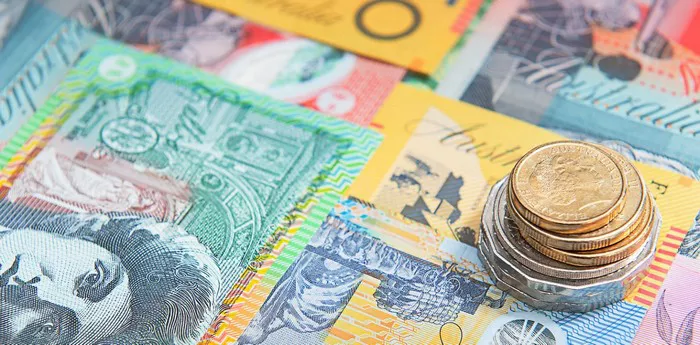In the intricate world of international finance, understanding foreign exchange and currency value is essential. The value of a currency is a fundamental factor that influences international trade, investments, and economic relations. Knowing which country has the highest currency value can provide significant insights into economic stability and the potential for international investments.
Currencies are valued based on exchange rates, which fluctuate due to various factors including economic policies, market demand, and geopolitical events. Identifying the country with the highest currency helps in comprehending global economic dynamics and informs decisions related to international business and investment strategies.
What is the “Highest Currency”
When discussing the “highest currency,” it is crucial to clarify the terminology. The “highest currency” can be interpreted in two ways: the strongest currency based on exchange rates against a common benchmark (usually the US Dollar) or the most valuable currency unit in terms of its purchasing power.
See also: How Do We Buy Foreign Currency
Exchange Rates and Their Fluctuations
Exchange rates represent the value of one currency in terms of another. These rates are dynamic and can change frequently due to economic news, market speculation, and government policies. For instance, if the exchange rate between the Euro and the US Dollar is 1.2, it means one Euro can be exchanged for 1.2 US Dollars. Fluctuations in exchange rates impact the relative strength and value of currencies on the global stage.
The Current Highest Currency
As of recent data, the Kuwaiti Dinar (KWD) holds the title of the highest-valued currency unit in the world. According to sources like Forbes and Investopedia, the Kuwaiti Dinar is the strongest currency due to its high exchange rate against the US Dollar. As of mid-2024, one Kuwaiti Dinar is equivalent to approximately 3.25 US Dollars.
Reasons Behind Kuwait’s Strong Currency
Several factors contribute to the strength of the Kuwaiti Dinar. Understanding these factors provides insight into why some currencies outperform others in the global market.
Economic Stability and Oil Reserves
Kuwait boasts significant oil reserves, making it one of the wealthiest countries in terms of natural resources. The oil industry is a critical pillar of Kuwait’s economy, contributing to substantial government revenues and foreign exchange reserves. The country’s economic stability is closely linked to its oil exports, which support a strong currency.
Low Inflation
Another factor contributing to the Kuwaiti Dinar’s strength is the country’s low inflation rate. A stable inflation rate helps maintain the purchasing power of a currency, making it more attractive to investors and traders. Kuwait’s prudent fiscal policies and effective monetary controls have kept inflation in check, supporting the high value of its currency.
Other Contenders for Strong Currencies
While the Kuwaiti Dinar stands out, other countries also have strong currencies that are worth noting. These include:
1. Bahraini Dinar (BHD): Like Kuwait, Bahrain’s currency is bolstered by oil revenues and a stable economy. The Bahraini Dinar is one of the highest-valued currencies globally.
2. Omani Rial (OMR): Oman’s currency strength is supported by its oil exports and prudent economic management, similar to Kuwait and Bahrain.
3. Jordanian Dinar (JOD): Despite not being an oil-rich country, Jordan has maintained a strong currency through careful monetary policies and economic reforms.
Factors Affecting Currency Value
Several factors influence the value of a currency. Understanding these can help explain why some currencies are stronger than others:
Interest Rates
Central banks use interest rates to control inflation and stabilize the currency. Higher interest rates tend to attract foreign investment, increasing demand for the currency and thereby strengthening it. Conversely, lower interest rates can lead to a weaker currency.
See also: How to Make Money in Share Market
Inflation
A low and stable inflation rate is crucial for maintaining the value of a currency. High inflation erodes purchasing power, leading to a decrease in currency value. Countries with low inflation rates typically have stronger currencies.
Economic Growth
Strong economic growth attracts foreign investment and increases demand for a country’s currency. Indicators such as GDP growth rates, employment levels, and industrial production are closely watched by investors and can influence currency values.
Political Stability
Political stability is a significant factor in currency valuation. Countries with stable governments and predictable economic policies are more likely to have strong currencies. Political turmoil or uncertainty can lead to currency depreciation as investors seek safer havens.
Conclusion
In conclusion, the value of a currency is a critical aspect of international finance and investment. The Kuwaiti Dinar currently holds the position of the highest currency in the world, supported by Kuwait’s economic stability, substantial oil reserves, and low inflation. However, when considering international investments, it is essential to look beyond just the exchange rate.
Factors such as political climate, economic growth, and inflation rates are crucial in making informed investment decisions. While the highest-valued currency provides insights into a country’s economic health, a comprehensive analysis of various factors is necessary for successful international investment strategies.


